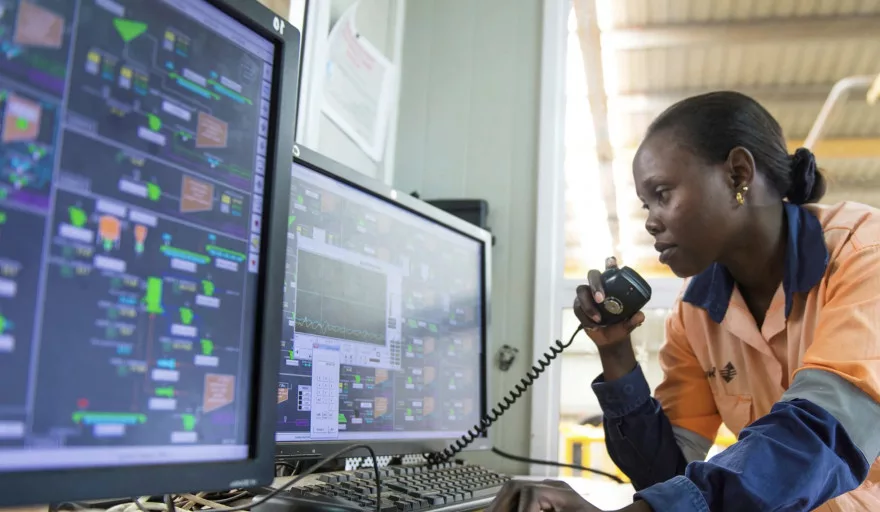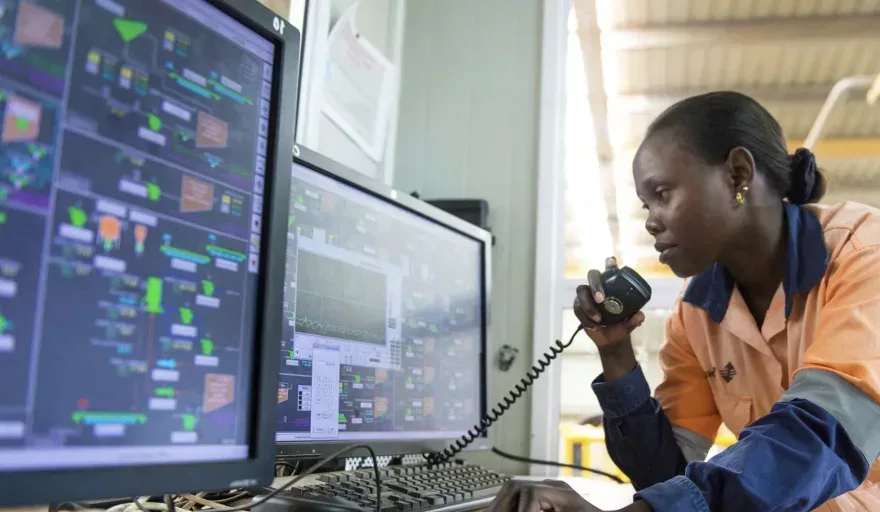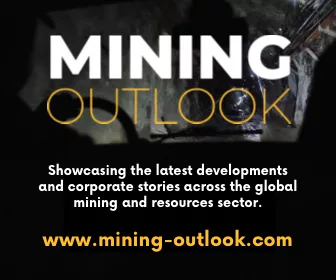
Empowering Women Across Africa
Dr. Melba K. Wasunna, External Affairs Manager at Base Titanium, discusses the role of women in mining and her belief that while significant strides have been made, it’s only the beginning
Writer: Sean Galea-Pace
Dr. Melba Wasunna certainly has her hands full.
Despite her day job as External Affairs Manager at Base Titanium, she serves as the Chairperson for the Association of Women in Energy and Extractives in Kenya (AWEIK), while also working as the Vice Chairperson of the Energy and Extractives Sector Board at the Kenya Private Sector Alliance (KEPSA).
Base Titanium is Kenya’s largest mining organisation, representing 65 percent of the total value of the company’s minerals production. Located in Kwale County, Base Titanium operates Kenya’s biggest mine, which was officially awarded flagship project status under Kenya’s Vision 2030 national development blueprint.
“Base Titanium has been instrumental in opening up Kenya’s mining sector,” explains Wasunna. “Before this, we had really small mines and not much of an industry to speak of. However, since the introduction of Base Titanium, we’ve managed to have a largely successful operation with fantastic community engagement. We’ve had no contentious mining issues or protests against us, which has been satisfying.
“Base Titanium is an industry-leader in Kenya. At the very beginning, a large percentage of our workers were expatriates, however, since that time that figure has changed dramatically and today our workforce is 99 percent Kenyan. We are leading the way not only in terms of the minerals that we mine, but also in setting the standard in the country.”
AWEIK is an organisation that provides women with opportunities for equitable professional and economic development within Kenya’s extractives sector. AWEIK awakens women’s potential in oil, gas and mining industries through lobbying, branding, member capacity development and business development services. The introduction of Base Titanium in Kenya heralded a new dawn for the country, but it was widely felt that the one thing missing was the voice of women. Subsequently, this led to the formation of AWEIK through the collaboration of UN Women and the Ministry of Mining in Kenya in 2016.
“We got several groups of women together: employed women, women in the supply chain and grassroots women,” explains Wasunna. “We felt all these different voices of women should come under one umbrella – AWEIK – and we started impacting on policy and moving the conversations forward.”
“We felt all these different voices of women should come under one umbrella – AWEIK – and we started impacting on policy and moving the conversations forward”
“We quickly came to the realisation that it is much easier for men to get opportunities than women. Women have time poverty, lack of education and limited access, while men are more easily networked. This sector was primarily male-dominated, as were the decision-makers, however – slowly but surely – we started to be listened to. Once our voices were heard, we created a strategic plan ensuring that we build on the momentum gained and try to empower women to participate more in the sector.”
“We began with just 20 members but have now grown to over 500 across Kenya. It’s been a fantastic journey so far but it’s only the beginning.”
With reference to her role as Vice Chairperson of the Energy and Extractives Sector Board, Wasunna is responsible for representing different mining companies that are members of the KEPSA association.
“We look at a variety of issues that are impacting the mining space. We look at whether this is an individualised issue or something that is industry-wide,” explains Wasunna. “KEPSA takes up issues and obtains high-level engagement. We try and build understanding of business and government and seek to find common ground. My role is to lead the mining voice in those conversations and represent the industry with the hope that they make incremental change to the policy and make a difference.”
The Kenya Vision 2030 aims to transform Kenya into a newly industrialising, middle-income country providing a high-quality of life to all its citizens by 2030 in a clean and secure environment.
“Mining is one of the pillars to deliver a more equitable society,” he says. “My work directly contributes do this because mining is such a small sector, currently contributing just one percent, but the belief is that it can contribute so much more, we just need certain things in place. Only through exploration can we find out how best to position ourselves as Kenya and how we can grow the mining economy in the years to come. It is all about making small steps towards the realisation of the Kenya Vision 2030 and mining can certainly play its part.”
Looking ahead, Wasunna believes that while there has been a gradual increase in diversity, the work isn’t finished yet. “We’d like to see women hold more positions at a board level and see the conversation eventually take a backseat because it’s not as necessary anymore due to increased representation,” she discusses. “Things are slowly changing but there is definitely more to do. In mining, I would like to see the industry become a significant contributor to Kenya’s economy while being seen as an industry that is worth investing in. That’s the aim.”































